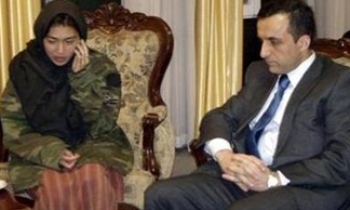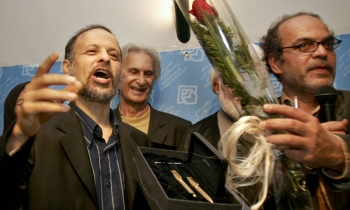A revolution of sorts is under way in Latin America with Uruguay holding the torchlight for the concept of democratic, community media. A draft community media law that says television and radio frequencies in Uruguay should be equitably distributed has already won overwhelming support in the House of Representatives.
On June 5, 2007, the Uruguayan Congress (Cámara de Representantes) approved by 49 out of a total of 59 votes, a draft law aimed at regulating and formally recognising a third broadcasting sector: community radio and television, to be run by non-profit civil society organisations.
The draft law was introduced to Parliament in October 2005, after being drawn up by a coalition that included AMARC, the national journalists' association (Asociación de la Prensa Uruguaya, APU), and the PIT-CNT (Plenario Intersindical de Trabajadores-Convención Nacional de Trabajadores) federation of labour unions. It was approved in its entirety, and will now go to the Senate for backing.
The draft law approved entails that broadcasting frequencies are to be awarded "through open, transparent and public competition" and not by the state, and should aim to promote plurality and diversity. A new honorary consultative council, made up of state, civil society and public and private university representatives, will get to play a part in granting and renewing frequencies.
A majority of deputies backed the draft law, which recognises community media as an entity in its own right within the broadcast sector. It defines community TV and radio as public interest services independent of the state, run by non-profit civil society organisations and designed to cater to citizens' "communications needs, the right to information and freedom of expression."
According to AMARC, the draft law recognises that radio broadcasting "is a technical support for exercising the human right to freedom of expression and freedom of information, which is an inherent right that predates state intervention." Under the new law, the radio-electric spectrum will be considered "an asset belonging collectively to humanity, subject to the administration of states, and therefore its equitable use by all of Uruguayan society is the overriding principle that will guide its administration."
AMARC said that following the positive legal precedents in Colombia, Ecuador, Venezuela, Bolivia and Peru, the law does not confuse the non-profit status with the right to seek funding. To ensure "the right to secure economic sustainability", the law allows community broadcasters to "obtain resources from, among other sources, donations, sponsorships, and advertising, including governmental advertising, in their access to which they will not be discriminated."
The draft law outlines some key principles to guide the democratic administration of radio-electric frequencies by the state, including: "the promotion of plurality and diversity" as a strategic objective, "non-discrimination and guarantees of equal access" and the "transparent public announcement of the procedures and conditions of the allocation of broadcasting rights."
It is explicitly stated in the draft law that “no prior or arbitrary limits may be placed on community media's exercise of freedom of expression by limiting the power of their transmitters, the range of coverage, or the number of stations in any locality.” “In no case is it to be understood,” the law states, that such a service “is necessarily geographically restricted in its coverage; the service is defined by its social objective, and not by the reach of the transmitter; the latter will depend upon the availability and planned use of the spectrum, as well as the proposed purpose of the station.”
The law establishes for the first time in Uruguay that frequencies must be allocated through open competitive processes that are public, transparent, and non-discretionary, and that involve prior public consultation. It also establishes, in accord with the recommendations of the Organisation of American States (OAS), that a part of the spectrum must be reserved for non-commercial and community use.
Another innovative aspect of the draft law is its call for the creation of a Honorary Consultative Council (Consejo Honorario Consultivo), comprised civil society representatives and representatives of public and private universities, as well as government representatives, to observe and participate in the process of the allocation and renewal of broadcasting frequency concessions.
Reporters sans Frontieres (RSF) has said, "This new Uruguayan legislation on community TV and radio should be an inspiration to the American continent, which has thousands of media in this category."
AMARC has reported that the draft was approved despite heavy pressure by corporate broadcast media to limit the range of community broadcasters, and to prevent them from obtaining television rights or the right to fund-raise.









